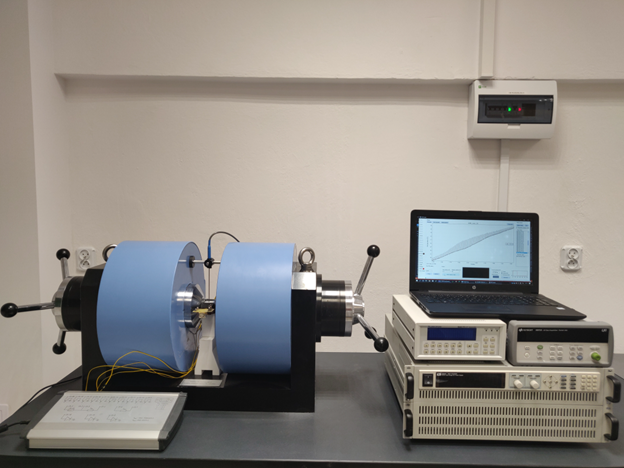Research activity area:
The team focuses on the study of physical phenomena and effects applicable to the conversion of residual heat energy into electricity, with particular emphasis on thermomagnetic converters. These works mainly concern electron and spin Seebeck effects. Nernst, Peltier, Hall. The aforementioned research aims at developing an autonomous power supply system based on a thermogenerator energy converter system.
As part of the research and development work of the team, the SpintronixLab research platform is being built, which will be used to identify the effects and study spintronic devices using a measuring probe with an ISHE (Inverse Spin Hall Effect) interface
In addition, the team conducts application research of materials showing a strong magnetocaloric effect in alloys based on lanthanum and gadolinium. The conducted research focuses on increasing the efficiency and energy efficiency of magnetecaloric materials that can be used in regenerators of magnetic refrigerators.
Research facilities:
- Electromagnet with the ability to generate DC magnetic fields in the range of up to 2T.
- Measurement of the DC/AC magnetic field with the Lakeshore 475 DSP teslameter
- Accurate measurement of DC voltages in the range of 100nV - 100mV (Agilent 34420A Nanovoltmeter, Agilent 3458A)
- Accurate temperature measurement from -20°C to 120°C degrees. (thermometers - own designs)
- Accurate measurement of DC current in the range of 1pA-1mA (Electrometer Keithley 6514) Material standards of magnetic quantities H,B.
Didactic facilities:
Laboratory of Metrology
Laboratory of Digital Analysis of Measuring Signals
Laboratory of Sensors and Actuators
Research group members:
Roman Gozdur, Ph.D. - leader
Łukasz Bernacki, M.Sc.
Assosiate Professor Ewa Raj, Ph.D. D.Sc.
Bartłomiej Guzowski, Ph.D.
Nataliia Bokla, Ph.D.
Tamara Klymkovych, Ph.D.
